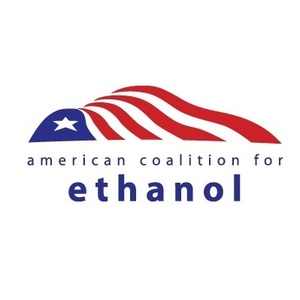ACE to Biden: RFS implementation, year-round E15 can reduce GHGs

August 11, 2021
BY American Coalition for Ethanol
The American Coalition for Ethanol today called on U.S. President Joe Biden to set the maximum statutory volumes under the Renewable Fuel Standard in the 2021 and 2022 Renewable Volume Obligation rulemaking and pursue all options to ensure uninterrupted market access for E15.
In a letter to President Biden, ACE CEO Brian Jennings outlined how these actions are the quickest way to reduce greenhouse gas (GHG) emissions from the U.S. transportation fleet in the near term and support net-negative biofuel production that can help achieve a fully decarbonized transportation future.
“We recognize your goal is to electrify the vehicle fleet in the future, but the inconvenient truth is there are hundreds of millions more people driving vehicles capable of using low-carbon substitutes to petroleum such as E15 and E85 today than any other alternative,” the letter stated. “Since this reality will exist well into the future, increasing the use of ethanol today will immediately reduce GHGs while the production of electric vehicles (EVs) ramps up.”
Advertisement
Jennings cited a report released this week by the Intergovernmental Panel on Climate Change, which makes the case for policies that drive CO2 removal, such as through the sequestration of carbon with climate-smart farming practices and biofuel production, to lower the Earth’s temperature. The letter pointed out that the RFS and state-level low carbon fuel standards are today’s policy drivers for scaling carbon sequestration through biofuels, but unfortunately, the past two Administrations have undermined the RFS slowing the replacement of petroleum with low-carbon renewable fuels.
“In the near-term, a properly implemented RFS and year-round availability of E15 will meaningfully reduce the carbon intensity of the U.S. transportation sector by capitalizing on the existing vehicle fleet’s ability to use lower-carbon biofuels,” Jennings explained in the letter. “In the mid-term, the pending RVO decision will act as a harbinger for companies on how much to rely on your commitment to net-zero emissions by 2050 when making investment decisions.”
Advertisement
The letter concluded by recognizing net-negative biofuels and EVs will both be needed to attain net-zero emissions in the U.S. transportation sector, but if the “Administration is not willing to ensure the RFS will call for 15 billion gallons of low-carbon ethanol already being produced to replace petroleum at the pump, legitimate questions will be asked about the merits of non-binding executive orders setting national goals for less deployable decarbonization technologies.”
A FULL COPY OF THE LETTER CAN BE ACCESSED HERE.
Related Stories
Saipem has been awarded an EPC contract by Enilive for the expansion of the company’s biorefinery in Porto Marghera, near Venice. The project will boost total nameplate capacity and enable the production of SAF.
Global digital shipbuilder Incat Crowther announced on June 11 the company has been commissioned by Los Angeles operator Catalina Express to design a new low-emission, renewable diesel-powered passenger ferry.
International Air Transport Association has announced the release of the Sustainable Aviation Fuel (SAF) Matchmaker platform, to facilitate SAF procurement between airlines and SAF producers by matching requests for SAF supply with offers.
Alfanar on June 20 officially opened its new office in London, further reaffirming its continued investment in the U.K. The company is developing Lighthouse Green Fuels, a U.K.-based SAF project that is expected to be complete in 2029.
ATR and French SAF aggregator ATOBA Energy on June 19 signed a memorandum of understanding (MOU) to explore ways to facilitate and accelerate sustainable aviation fuel (SAF) adoption for ATR operators.
Upcoming Events










